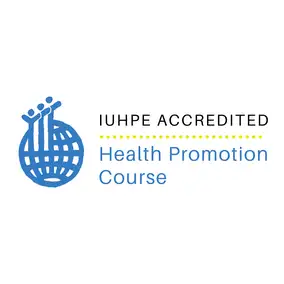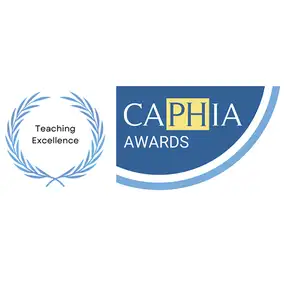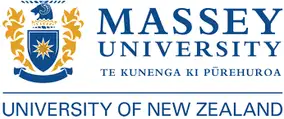Where you can study
International students
International students are not New Zealand citizens or residents.
Specialise in Mental Health and Addiction for your Bachelor of Health Science at Massey
This qualification provides the knowledge and skills required to work as an addiction practitioner within a range of services in Aotearoa New Zealand, or to work in roles in mental health promotion. It integrates the Essential and the Practitioner Competencies for Addiction Specialists required by the Drug and Alcohol Practitioners Association of Aotearoa New Zealand (DAPAANZ). These competencies are embedded in a broader framework of health promotion, hauora Māori knowledge and social work engagement practice.
The qualification has two pathways:
- Addiction Practitioner Pathway: This pathway is for graduates who wish to be eligible to apply for provisional registration with DAPAANZ to work as addiction practitioners. You will complete a set of 24 prescribed courses in this pathway (no elective options available). This will include two placement courses with addiction services under the supervision of addiction practitioners.
-
Mental Health Promotion Practitioner Pathway: This pathway is designed for students passionate about improving mental health through community and whānau engagement. You will develop skills in health promotion, programme management, research, and policy. The pathway includes 24 prescribed courses, providing a comprehensive foundation for those who aspire to make a meaningful impact through mental health promotion. Upon completion, you will be eligible to apply for registration with the International Union for Health Promotion and Education (IUHPE) as a Health Promotion Practitioner.
In the mental health and addiction field, you’ll promote and sustain the wellbeing of individuals, whānau, and communities. You’ll work to reduce inequities and to improve the social, cultural, environmental, and political determinants of mental health and addiction.
With Massey’s Bachelor of Health Science (Mental Health and Addiction), you’ll become a reflective and dynamic thinker, capable of demonstrating commitment to equity within a broad hauora wellbeing approach.
You’ll learn:
- key concepts in mental health and addiction, its determinants
- te reo, tikanga and engagement with Māori
- social and community helping and advocacy skills
- models and predictors of mental health, public health and addiction
- key concepts in public health.
You’ll gain:
- the skills to facilitate, lead and advise in order to solve complex challenges
- an appreciation of the development, history, and context of mental health and addiction in Aotearoa New Zealand
- skills of meaningful engagement, authentic relationships, and shared decision-making to plan and evaluate interventions to improve population wellbeing.
Study to suit your lifestyle
With distance learning, you can plan your study to suit your lifestyle. Please note that some courses in this major will require you to attend on-campus contact workshops of between 1 and 3 days during the semester in Manawatū. You can enrol in the Bachelor of Health Science (Mental Health and Addiction) full-time or part-time.
Further study
Bachelor of Health Science (Mental Health and Addiction) graduates can go on to further postgraduate study in the following qualifications:
A Bachelor of Health Science in Mental Health and Addiction is a good fit if you:
- are passionate about supporting change in tangata whai ora experiencing mental health and addiction challenges
- personally value respect, aroha and hope
- want to work with others to develop social justice and inclusion
- care about promoting the mental health and wellbeing of individuals, whānau and communities.
Planning information
If you study full-time in your first year, you’ll take eight 15-credit courses, totalling 120 credits.
If you wish to study over two semesters, you should aim for 60 credits per semester.
Ensure you include courses that are prerequisites for the next level of courses you wish to study. You need to choose these two courses in your first year because they are the pre-requisites for two of your 200-level compulsory major courses:
Year One
Semester One
- 231106 Introduction to Public Health
- 250100 Health Communication
- 214101 Human Bioscience: Normal Body Function
- 147102 Whakapiri: Engagement in Mental Health and Addiction Work (prerequisite for Year Two course)
Semester Two
- 214102 Applied Sciences for Health Professionals
- 231107 Social Determinants of Health (recommended to be taken in Semester Two only)
- 150112 Hauora tangata: Foundations of Māori Health
- 179155 A Foundation of Interpersonal Skills for the Helping Professions (prerequisite for Year Two course)
Year Two
Semester One
- 250205 Principles and Practice of Human Epidemiology
- 150235 Whakamārama: Approaches to Māori Mental Health and Addiction
- 214201 Human Bioscience: Impaired Body Function
- 150202 Mauri ora: Māori Wellbeing and Vitality
Semester Two
- 147202 Mental Health Promotion
- 179210 Social Work Theories and Interventions
- 179230 Tangata Moana Perspectives and Practices for Transformation
- 147204 Whakamahi: Introduction to Mental Health and Addiction Placement
Year Three
Semester One
- 250331 Health of Communities
- 147305 Whakamana: Change Agency in Mental Health and Addiction
- 179310 Integrated Practice with Groups and Families
- 150302 Whānau ora: Principles of Flourishing Whānau
Semester Two
- 147302 Alcohol, Other Drugs and Addiction
- 250303 Systems Thinking and Design for Health
- 250320 Work Integrated Learning in Health Sciences
- 214212 Research Methods in the Health Sciences.
Meeting requirements for industry membership
DAPAANZ recognition
Drug and Alcohol Practitioners’ Association Aotearoa–New Zealand (DAPAANZ) is the membership association representing the professional interests of practitioners working in addiction treatment. As a graduate of this qualification, you may be eligible to apply for DAPAANZ accreditation as a provisionally registered mental health and addiction professional.
If you are seeking to gain accreditation in Mental Health and Addiction, you will need to complete the following courses as your Schedule C elective courses:
- 147204 Whakamahi: Introduction to Mental Health and Addiction Placement, in your second year, and
- 250320 Work Integrated Learning in Health Sciences, in your final year.
Failure to pass 147204 or 250320 on a second attempt will lead to exclusion from the Bachelor of Health Science (Mental Health and Addiction). Students can apply to transfer to the non-accredited pathway.
Official regulations
To understand what you need to study and must complete to graduate read the official rules and regulations for this qualification.
You should read these together with all other relevant Statutes and Regulations of the University including the General Regulations for Undergraduate Degrees, Undergraduate Diplomas, Undergraduate Certificates, Graduate Diplomas and Graduate Certificates.
Returning students
For returning students, there may be changes to the majors and minors available and the courses you need to take. Go to the section called ‘Transitional Provisions’ in the Regulations to find out more.
In some cases the qualification or specialisation you enrolled in may be no longer be taking new enrolments, so may not appear on these web pages. To find information on the regulations for these qualifications go to the Massey University Calendar.
Please contact us through the Get advice button on this page if you have any questions.
Courses you can enrol in
Course planning key
- Prerequisites
- Courses that need to be completed before moving onto a course at the next level. For example, a lot of 200-level courses have 100-level prerequisite courses.
- Corequisites
- Courses that must be completed at the same time as another course are known as corequisite courses.
- Restrictions
- Some courses are restricted against each other because their content is similar. This means you can only choose one of the offered courses to study and credit to your qualification.
Core courses for the Bachelor of Health Science
As well as the specialisation courses listed below, this qualification has core courses that you will need to complete.
Bachelor of Health Science core courses
Mental Health and Addiction courses
Compulsory courses
Course code: 147202 Mental Health Promotion 15 credits
The course covers the rationale and principles of promoting mental health in Aotearoa New Zealand and globally. Attention is given to key concepts and frameworks underpinning this area of practice.
View full course detailsCourse code: 147302 Alcohol, Other Drugs and Addiction 15 credits
A focus on alcohol, other drug use and addiction in Aotearoa New Zealand, emphasising harm reduction and health promotion as intervention tools. Students will develop a critical understanding of the aetiology and epidemiology of drug use and addiction, the co-existence of conditions with addictions, and effective legal, public policy and treatment responses to reducing harm.
View full course detailsCourse code: 147305 Whakamana: Change Agency in Mental Health and Addiction 15 credits
Principles underpinning mental health and addiction work in Aotearoa New Zealand are applied through the whakapiri, whakamārama, whakamana framework to enable students to become agents of social inclusion, moving their work beyond knowledge to empowerment, action and sustainability. Students integrate and apply collaborative and reflective practice, critical thinking, coordinated responses, and mana-enhancing approaches to work with tangata whai ora, whānau and communities.
View full course detailsCourse code: 150235 Whakamārama: Approaches to Māori Mental Health and Addiction 15 credits
Principles underpinning Māori mental health and addiction work in Aotearoa New Zealand will be applied in the development of a social inclusion approach to mental health and addiction work across the life-course and in a range of settings. A hauora approach is used to focus on engagement, prevention, and early intervention with tangata whai ora, whānau and communities.
View full course detailsCourse code: 150302 Whānau ora: Principles of Flourishing Whānau 15 credits
Approaches for the advancement of Māori health will be reviewed with a particular focus on health promotion, whānau ora and the link between Māori health initiatives and positive Māori development.
View full course detailsCourse code: 179210 A Relational Framework for Social Work Theory and Practice 15 credits
Developing a relational-praxis framework for different theories of social work, models of practice and approaches to engagement, assessment and intervention.
View full course detailsCourse code: 179230 Tangata Moana Perspectives and Practices for Transformation 15 credits
Examining Tangata Moana (Pacific/Pasifika) perspectives and how they inform social practice and policy towards transforming individual, family and community outcomes.
View full course detailsCourse code: 179310 Integrated Social Work Practice - Decolonising Social Work 15 credits
Theories and skills of group dynamics, collaboration, conflict management and culturally appropriate communication. Students develop their facilitation skills for working with people from diverse and culturally different backgrounds.
View full course detailsEntry requirements
Admission to Massey
All students must meet university entrance requirements to be admitted to the University.
Specific requirements
When applying for the Bachelor of Health Science (Mental Health and Addiction), you will be required to provide the following additional information:
- A personal statement (see below)
- Answer the readiness-for-study questions as part of your online application.
- Signal which pathway (accredited or non-accredited) you seek to pursue.
"Selected entry" is in place if you seek to apply for the Addictions Practitioner Pathway. Applicants for this pathway will be selected for entry into the required placement courses in the second year (147204) and third year (250320) of this qualification. Entry requirements for these placement courses will reflect some (or all) of the following:
- Police checks (see below) - complete the request and consent form for police vetting
- Children’s Act check (see below) – check for safety concerns under the Children’s Act.
- Health status checks (see below) - complete the Health and Disability Declaration.
- Review of your academic achievement in the qualification to date with a minimum expected pass of B+ in all courses
- Feedback (as requested) from MHA major course coordinators on your suitability
- An interview with programme staff and a DAPAANZ-registered practitioner
- As directed by qualification staff, you may be required to undertake a fitness-for-addiction-work interview with a mental health specialist.
Please note: While qualification staff will work with students in the Addiction Practitioner Pathway to find a suitable placement, we cannot guarantee placements. Should we collectively fail to find a suitable placement, your enrolment in that placement course will be deferred until the following year. This will not negatively affect your academic record.
Personal statement
A personal statement of 400-500 words outlining your reasons for applying, previous study, and relevant life and work experience (.docx or .pdf file).
Police and safety checks
Many organisations have a policy that requires that their staff agree to a Police check to ascertain whether they have any criminal convictions. You are required to undertake a Police check before the placement begins, including:
- providing details of any convictions or charges pending in Aotearoa New Zealand, and/or overseas
- completing the vetting service request and consent form for an Aotearoa New Zealand Police check
- providing a current Police certificate from any overseas countries you have lived in for twelve months or more in the last ten years.
Some agencies will also require an additional police check. Prior convictions may not preclude a placement. However, it is beneficial that you are forthcoming about previous convictions. Once police vetting reports have been received, you will have the opportunity to clarify any findings. This information will be dealt with confidentially, but depending on the nature of the offence, it may need to be disclosed to the host organisation and may affect placement. Where necessary, you may also be required to fulfil the criteria in the Children’s Act and the standard health check required to access Te Whatu Ora sites for addiction placement opportunities.
Health and disability declaration
Please indicate if you have any short or long-term disability (including learning disability), impairment, injury or physical/mental health condition. If you disclose any disability, health or personal information as part of your application, this will be discussed with you at an interview. The information supplied is confidential to the University staff processing your application.
Note that you may also need to provide evidence before going on placement that you meet the immunisation standards of practice for healthcare professionals in New Zealand.
English language skills
If you need help with your English language skills before you start university, see our English for Academic Purposes (EAP) courses.
Fees and scholarships
Fees, student loans and free fees scheme
Your tuition fees may be different depending on the courses you choose. Your exact fees will show once you have chosen your courses.
There will also be some compulsory non-tuition fees and for some courses, there may also be charges for things such as study resources, software, trips and contact workshops.
- Get an estimate of the tuition fees for your qualification
- View a list of non-tuition fees that may be payable
Already know which courses you're going to choose?
You can view fees for the courses that make up your qualification on the course details pages.
Student loans (StudyLink) and Fees Free scheme
You may be eligible for a student loan to help towards paying your fees.
The New Zealand Government offers fees-free tertiary study for eligible domestic students. Find out more about the scheme, including how much could be covered and your eligibility on the Fees Free website.
Scholarship and award opportunities
Search our scholarships and awardsFees disclaimer
This information is for estimation purposes only. Actual fees payable will be finalised on confirmation of enrolment. Unless otherwise stated, all fees shown are quoted in New Zealand dollars and include Goods and Services Tax, if any. Before relying on any information on these pages you should also read the University's Disclaimer Notice.
Careers and job opportunities
With the Bachelor of Health Science (Mental Health and Addiction) you will possess the knowledge and transferrable skills to work within a range of mental health settings.
Roles may include:
- addition practitioner
- advisors
- advocates
- educators
- health promoters
- kaimahi and kaiāwhina
- whānau ora navigators
- case managers
- probation officers
- public health workers
- community development workers
- policy analysts
- programme coordinators
- community outreach workers.
You may work within:
- Te Whatu Ora
- Primary Health Organisations
- non-government organisations
- local and central government
- iwi social services and Māori health organisations
- government agencies
- culturally-specific services
- the disability sector
- aged care sector
- public health units
- youth services
- the education sector
- community organisations.
Plan your courses
View your course options and plan your study using our course planner.
What our students say
“My placement gave me some clinical experience, but my theoretical learning is what really prepared me to do well. Although I studied online, I enjoyed connecting with peers in my final year, as we supported one another through our placements and into the workforce.”

Accreditations and rankings

IUHPE Accreditation (Mental Health Promotion)
The Mental Health Promotion Pathway in the Bachelor of Health Science (Mental Health and Addiction) is accredited by the International Union for Health Promotion and Education (IUHPE). Graduates are eligible to apply to IUHPE to become registered Health Promotion Practitioners

CAPHIA Team Teaching Excellence Award 2023
Council of Academic Public Health Institutions Australasia (CAPHIA) Teaching Excellence recognises and rewards the contribution of CAPHIA members to quality teaching and learning and inspiring student learning in public health.

ShanghaiRanking - public health
Massey University is ranked in the top 500 universities in the world and fourth in New Zealand in the subject area of public health by the ShanghaiRanking's Global Ranking of Academic Subjects.

DAPAANZ - Drug and Alcohol Practitioners Association of Aotearoa New Zealand
The Addiction Practitioner Pathway in the Bachelor of Health Science (Mental Health and Addiction) is accredited by the Drug and Alcohol Practitioners Association of Aotearoa New Zealand (DAPAANZ). Graduates are eligible to apply for provisional registration to work in the sector as addiction practitioner.
Related study options
Health Promotion – Bachelor of Health Science
Tackle key health challenges and improve individual, community and population well-being with Massey's Bachelor of Health Science (Health Promotion).
Integrated Human Health – Bachelor of Health Science
Learn about the impact of biological and environmental factors on human health, and how you can make a difference.
Without Specialisation – Master of Health Science
Advance your knowledge and skills in the growing health industry.
Without Specialisation – Postgraduate Diploma in Health Science
Massey’s Postgraduate Diploma in Health Science will give you the skills you need to succeed in the growing health industry.
Useful planning information

Key information for students
Compare qualifications and academic information across different New Zealand institutions. Learn more on careers.govt.nz
